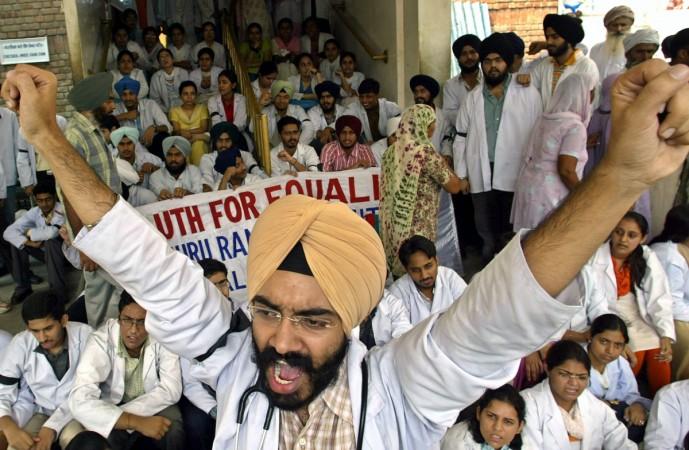
The British Medical Journal (BMJ) has urged the Indian government to take immediate steps for the overhaul of the country's medical education regulator, the Medical Council of India. The BMJ praised the parliamentary panel that had earlier lashed out at the MCI for violating ethics while providing licences to medical colleges.
The BMJ welcomed the parliamentary panel report Friday and called it a landmark. The panel's recommendations include changing the constitution of the MCI, monitoring the annual fees charged by the medical colleges and better distribution of medical colleges in India to address the shortage of doctors.
In 2014, the BMJ launched a campaign against corruption within the MCI that brought to global notice the rampant practices of undue favours and capitation fees in medical colleges, and inference of corporate hospitals. The BMJ said the Indian government should act on the parliamentary panel's recommendations and combat the political pressures which may hurt the MCI overhaul process.
The powerful private medical college industry in India derives strength from its political and monetary clout in funding electoral campaigns. Compromised individuals in the MCI have also bounced back after being prosecuted, and their influence seems to extend across the political spectrum, the BMJ said in a statement.
It also said the Union Health Ministry should not keep the proposals from the panel under consideration for long, and should avoid the sustained pressure from the medical community, activists, civil organisations and the media.
Sanjay Nagral, a consultant surgeon at Jaslok Hospital in Mumbai, said the recent standing committee report to the Indian parliament lays bare the MCI failure to oversee quality and integrity in health services in the country. "For those of us in the medical profession in India who have been despairing of the state of affairs, this report is a long awaited panacea," a team of doctors led by Nagral wrote in the BMJ.
The MCI was established under the Indian Medical Council Act 1933. It is entrusted with the responsibility for maintaining standards of medical education, providing ethical oversight, maintaining the medical register, and, through amendments in 1993, sanctioning medical colleges.

















